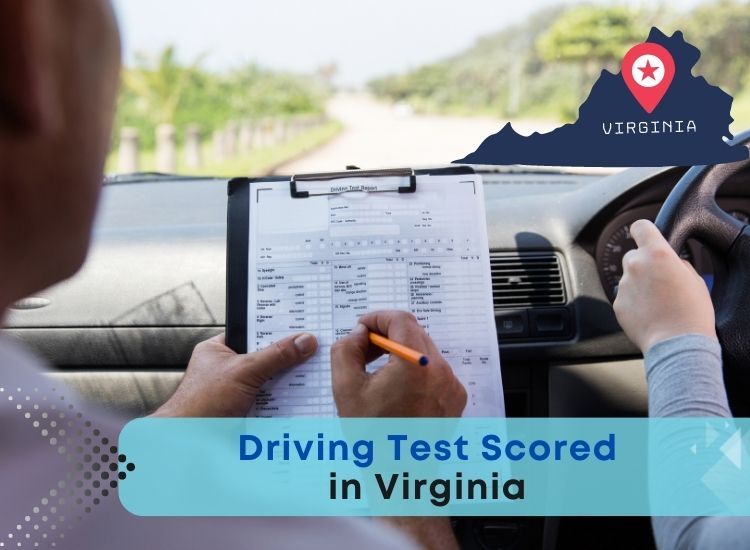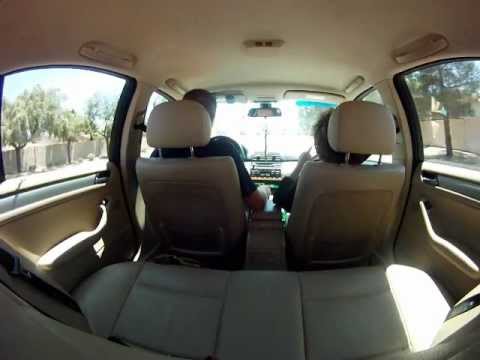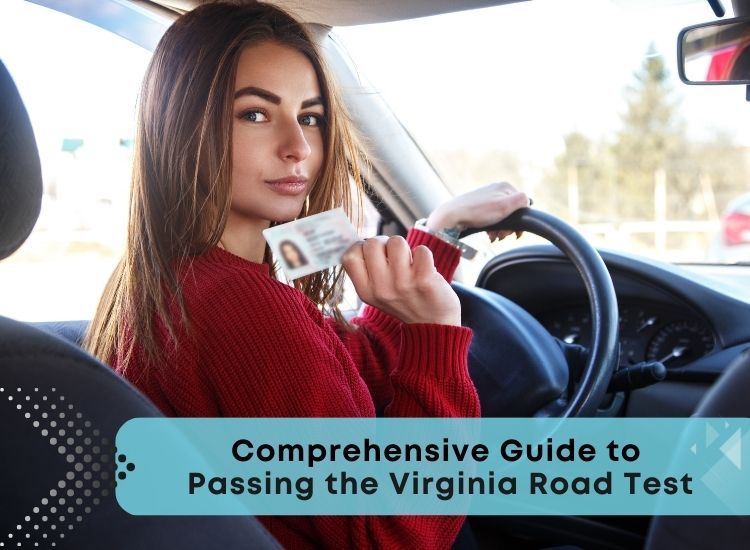Driving Test Scored in Virginia: A Comprehensive Guide
Welcome to our comprehensive guide on the driving test scored in Virginia. We understand the importance of passing your driving test with flying colors and obtaining your driver’s license. In this guide, we will provide you with all the essential information, tips, and strategies to help you excel in your driving test and increase your chances of success.
Understanding the Driving Test in Virginia
The driving test in Virginia is designed to assess your knowledge of traffic laws, understanding of road signs, and ability to apply safe driving practices. It consists of two parts: the written knowledge test and the practical road test. Let’s delve into each section to gain a deeper understanding.
The Written Knowledge Test
The written knowledge test evaluates your understanding of traffic laws, road signs, and driving regulations in Virginia. It is essential to study the Virginia Driver’s Manual thoroughly to prepare for this test. The manual covers a wide range of topics, including:
- Traffic signs and signals
- Right-of-way rules
- Speed limits and safe driving practices
- Sharing the road with pedestrians, bicyclists, and other vehicles
- Parking and stopping regulations
To excel in the written knowledge test, we recommend adopting the following strategies:
- Study the Virginia Driver’s Manual: Read and understand the manual, paying special attention to important sections and taking notes for later review.
- Take Practice Tests: Familiarize yourself with the format and types of questions by taking practice tests available online or through the Department of Motor Vehicles (DMV).
- Review Frequently Missed Questions: Identify the questions you often get wrong in practice tests and revisit those topics for further understanding.
- Seek Clarification: If you come across any confusing or ambiguous concepts, consult reliable sources or seek clarification from knowledgeable individuals.
Easy steps To Help You Pass DMV VA Written Test
The Practical Road Test
The practical road test is designed to evaluate your ability to apply safe driving skills on the road. It assesses your knowledge of vehicle controls, defensive driving techniques, and adherence to traffic laws. To prepare for the practical road test, consider the following tips:
- Enroll in a Driver’s Education Program: Taking a driver’s education course can provide you with valuable knowledge and hands-on experience, enhancing your driving skills and confidence.
- Practice with a Licensed Adult: Spend ample time practicing driving with a licensed adult who can guide you, provide constructive feedback, and help you improve your driving skills.
- Observe and Follow Traffic Laws: Pay close attention to traffic signs, speed limits, and right-of-way rules during your practice sessions. Practicing safe driving habits consistently will prepare you for the road test.
- Master Parallel Parking: Parallel parking is often a challenging aspect of the road test. Practice this maneuver until you can confidently perform it flawlessly.
- Stay Calm and Focused: On the day of the test, remain calm and focused. Follow the examiner’s instructions carefully, be aware of your surroundings, and demonstrate defensive driving techniques throughout the test.
On the Road: Navigating the Virginia Driving Test
Pre-test Road test in Virginia
Tips for Excelling in Your Driving Test
Now that we have covered the basics of the driving test in Virginia, let’s explore some additional tips to help you excel in your test and increase your chances of obtaining a high score.
Comprehensive Guide to Passing the Virginia Road Test
Tip 1: Develop a Positive Mindset
Approach the driving test with a positive mindset. Believe in your abilities and remain confident throughout the test. Remember that the examiner is looking for safe and responsible driving practices, so trust in your preparation and showcase your skills.
Tip 2: Practice Defensive Driving
Defensive driving is a crucial aspect of the driving test. Maintain a safe following distance, anticipate potential hazards, and always be aware of your surroundings. Show the examiner that you prioritize safety and are capable of making informed decisions on the road. Display defensive driving techniques by being attentive, signaling lane changes, and yielding when necessary.
Tip 3: Familiarize Yourself with the Test Route
While you cannot predict the exact route of your road test, it is beneficial to familiarize yourself with the general areas and roads where the test is commonly conducted. This knowledge will help you anticipate road conditions, speed limits, and any challenging intersections or maneuvers that you may encounter during the test.
Tip 4: Practice Proper Observation and Communication
During the road test, it is crucial to demonstrate proper observation skills and effective communication with other drivers and pedestrians. Use your mirrors frequently, check blind spots, and clearly signal your intentions when turning, changing lanes, or merging. Maintaining good communication and awareness will showcase your attentiveness and commitment to safe driving practices.
Tip 5: Manage Test Anxiety
Feeling nervous before and during your driving test is completely normal. However, excessive anxiety can hinder your performance. To manage test anxiety effectively, consider these techniques:
- Deep Breathing: Take slow, deep breaths to calm your nerves and relax your body.
- Positive Self-Talk: Remind yourself of your preparation, skills, and capabilities. Replace negative thoughts with positive affirmations.
- Visualize Success: Imagine yourself confidently completing the driving test and receiving your driver’s license.
- Practice Mindfulness: Stay present in the moment and focus on the task at hand. Avoid dwelling on past mistakes or worrying about future outcomes.
By implementing these tips, you can overcome test anxiety and perform at your best during the driving test.
Conclusion
Congratulations! You have now been equipped with valuable information and tips to excel in your driving test scored in Virginia. Remember to study the Virginia Driver’s Manual thoroughly, practice defensive driving techniques, and build confidence through consistent practice. Keep a positive mindset, stay focused, and demonstrate your knowledge of traffic laws and safe driving practices during the test.
Passing your driving test and obtaining your Virginia driver’s license is an important milestone. Embrace the learning experience, drive responsibly, and enjoy the freedom and opportunities that come with being a licensed driver.
Best of luck on your driving test journey!
Frequently Asked Questions
Q1: How can I prepare effectively for the written knowledge test in Virginia?
To prepare effectively for the written knowledge test in Virginia, thoroughly study the Virginia Driver’s Manual, take practice tests to familiarize yourself with the format and types of questions, and seek clarification for any confusing concepts.
Q2: What are some common topics covered in the Virginia Driver’s Manual?
The Virginia Driver’s Manual covers topics such as traffic signs and signals, right-of-way rules, speed limits, safe driving practices, sharing the road, parking regulations, and more.
Q3: What are the key factors assessed during the practical road test in Virginia?
During the practical road test in Virginia, key factors assessed include vehicle control, defensive driving skills, adherence to traffic laws, effective communication with other road users, and awareness of surroundings.
Q4: How can enrolling in a driver’s education program benefit my preparation for the driving test?
Enrolling in a driver’s education program provides valuable knowledge, hands-on experience, and guidance from professionals, enhancing your driving skills, understanding of traffic laws, and confidence for the driving test.
Q5: What are some essential defensive driving techniques that I should practice?
Essential defensive driving techniques to practice include maintaining a safe following distance, anticipating hazards, using mirrors frequently, signaling properly, and being aware of pedestrians, cyclists, and other vehicles.
Q6: What are the benefits of familiarizing myself with the common test routes in Virginia?
Familiarizing yourself with common test routes in Virginia helps you become acquainted with the road conditions, speed limits, intersections, and maneuvers that may be encountered during the driving test, thus increasing your preparedness and confidence.
Q7: How can I effectively manage test anxiety during the driving test?
To effectively manage test anxiety during the driving test, practice deep breathing techniques, maintain a positive mindset, visualize success, focus on the present moment, and remind yourself of your preparation and capabilities. Engaging in these strategies can help reduce anxiety and enhance performance.
Resources I Use
Resource 1: DMV Virginia – http://www.dmvNOW.com
Resource 2: Virginia Driver’s Manual : https://www.dmv.virginia.gov/webdoc/pdf/dmv39.pdf







